Last week, I was here: Belvoir Terrace in Lenox, MA.
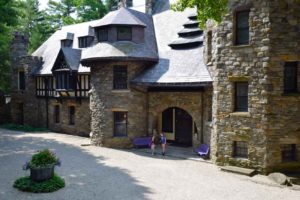
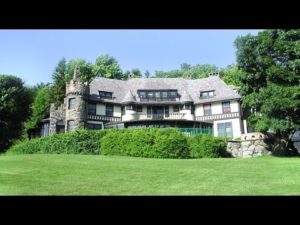
It is exactly the type of castle where I imagined my favorite princesses to live in, when I was a child.
It is also the home to ArtsAhimsa Chamber Music Festival. (http://www.artsahimsa.org/events/fest/index.htm) It was my third year returning there as a faculty member. Each year, I grow more fond of the community of music lovers, each of them highly accomplished in their own fields of expertise, outside of their love of music.
We opened the discussion by reading from ArtsAhimsa’s mission “to promote non-violence through the universal language of the Arts. …The Arts can bring us together and remind us that what we share, our common humanity, is greater than our differences.”
Then we all clapped our hands together in rhythm to my lead. This always breaks the ice, and makes people laugh a bit. Neuroscience tells us that even simple synchronization like the coordinated hand clapping makes us happier and like each other more. Data collected by new advancing medical technology has been reaffirming the power of music that we have already known through our own personal experience performing throughout the world. Music synchronizes our heart beats and breathing: Some scientists say, even our brainwaves. Communal experience of music strengthens our bonds. Music’s power over us is because we are social animals. Since we are social animals, we are at our best, and our happiest, when we are helping each other. So, let’s use music to help others!
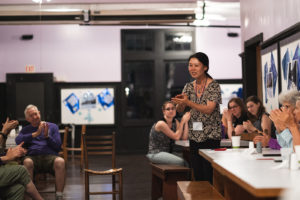
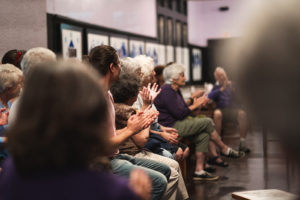
Following our clapping exercise, each member of the panel spoke about their expertise and why they believed that music (or art) can help us help others.
Nancy Goldberg has been the director of Belvoir Terrace Summer Girls Performing Arts Camp for nearly a half century, empowering generations of 150 girls each year through arts education. https://www.belvoirterrace.com/owners-and-staff/ She also has opened up the summer camp to provide musical opportunities for people with Williams Syndrome. https://www.nytimes.com/2002/08/26/us/a-music-camp-for-those-afflicted-but-gifted-too.html As an education specialist, and from her work at Belvoir Terrace, she is convinced that art education is crucial to nurturing flexible perspective and compassionate attitude.
Lynn Nowels is a cellist. On the panel, she shared her experience as a teacher at Bridge Boston Charter School, “designed to serve the most vulnerable children,” with the belief that “the most effective way to lift children out of poverty is by equipping them with an excellent education.” http://
Stephanie Engel is a psychiatrist who has been regularly volunteering at Village Health Works, “a rapidly growing grassroots nonprofit organization that provides quality, compassionate health care in a dignified environment in rural Burundi, East Africa.” http://villagehealthworks.org.
Flutist Bärli Nugent is at The Juilliard School, serving as the Assistant Dean and Director of Chamber Music, Director of the Mentoring Program, and a member of the Graduate Studies and Pre-College faculties. A highlight of her graduate students’ exploration of the power of music to change lives is their active participation in a Mark Morris’ Dance Group’s Sing and Dance for PD (Parkinson’s Disease) class https://danceforparkinsons.
Adreienn Nassau worked for World Bank and oversaw Cultural Heritage Projects in Bosnia, St. Petersburg and Turkey. She explained how restoration of culture not only helps re-establish identity in communities facing difficulties, but it also creates jobs, attracts international attention, boosts tourism and eventually leads to economic recovery. She is also a cellist.
Judith Prowda is an art lawyer and Faculty at Sotheby’s Institute of Art where she teaches graduate courses in art law in the Master’s of Art Business Program. https://www.sothebysinstitute.
Laura Jean Goldberg is a violinist and the founder/director of ArtsAhimsa. She has also been a faculty member at The Juilliard School’s Pre-College Division for decades, where I first met her. She spoke about the inspiration she finds in Gandhi’s non-violence, and her experience performing in India, especially at Mother Teresa’s.
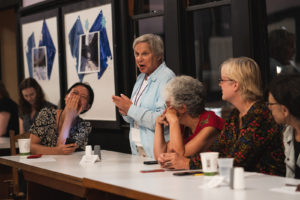
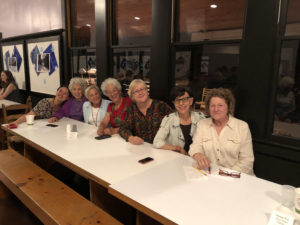
After the panel, throughout the rest of the week at the festival, so many people came up to me to tell me how they were inspired by the idea of helping others through their music, and what they thought they could do. They shared their plans and ideas on various different ways in sharing their music with their community through teaching and performance. We are empowered by music, and each other. Music rocks.